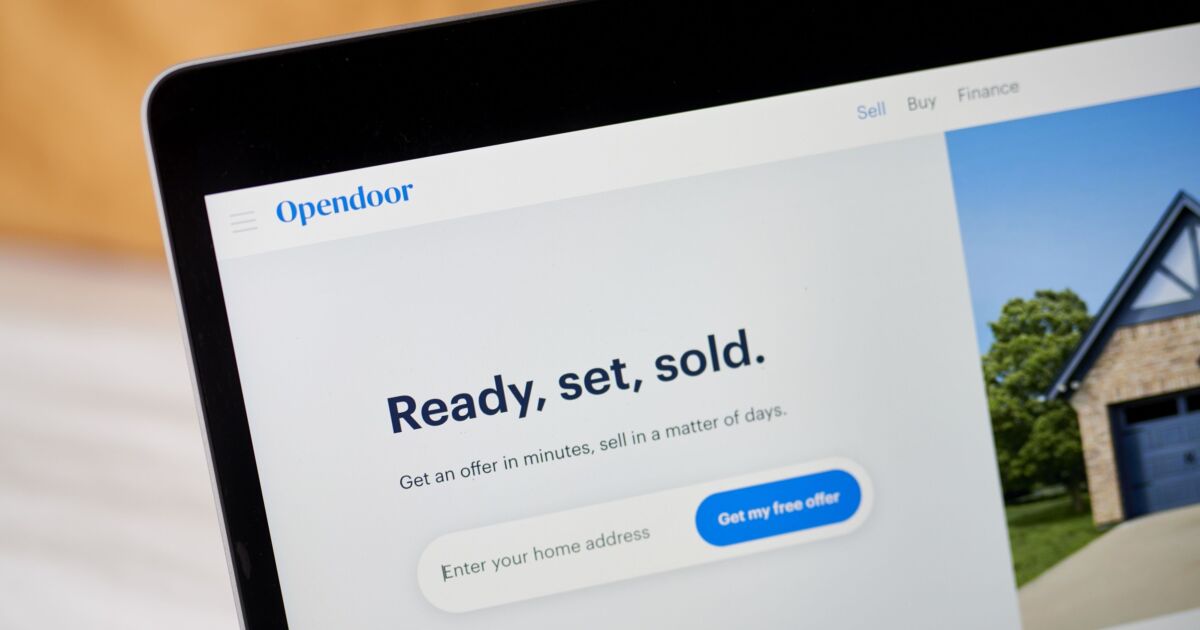
Although GAAP profitability continues to elude Opendoor Technologies, the company reported a positive result under one non-GAAP measure, its first in three years.
The company, which facilitates cash offers for real estate buyers, cut its net loss from the previous year by 68%, but guidance going forward was less encouraging.
These results were announced after the market closed on Aug. 5, and while
Opendoor did beat analyst expectations on several non-GAAP measurements, noted Keefe, Bruyette & Woods analyst Ryan Tomasello in a flash note.
Earnings per share on a non-GAAP basis was a 1 cent loss, which compared with KBW and consensus expectations of a 2 cent loss.
"The beat to KBW was driven by higher revenue and lower [operating expenses], partly offset by lower contribution margins," wrote Tomasello.
Opendoor reported adjusted EBITDA of $23 million, surpassing both KBW and consensus forecasts of $17 million, as well as the company's own guidance range of $10 million to $20 million.
"This outcome is an indicator of the meaningful operating leverage we have driven and provides a road map for what [adjusted net income] breakeven could look like in the future," Selim Freiha, chief financial officer, said on the quarterly call.
In the first quarter, adjusted EBITDA was a loss of $30 million, while for last year's second quarter, it was a loss of $5 million.
On a GAAP basis, Opendoor lost $29 million during the second quarter. This compared with losses of $85 million in the first quarter and $92 million in the second quarter of 2024.
This was helped by an increase in revenue, to $1.6 billion, a gain of 36% from the first quarter and 4% one year ago.
"Our Q2 performance reflects deliberate choices we've made, including increased marketing spend in Q4 2024 and Q1 2025 to acquire more homes ahead of the spring selling season and widening offer spreads in Q2 2025 to manage risk as we prioritize marketing spend efficiency and disciplined underwriting," Freiha said.
Despite some positive indicators, the news pushed Opendoor's stock price down to $1.875 per share on Wednesday morning's open, from the previous close of $2.52.
But the price soon rebounded and at 10:35 a.m., Opendoor was trading at $2.07.
Opendoor remains the meme stock of the moment. On June 30, it closed at 53.3 cents per share. By July 15, it broke above $1 per share mark and got as high as $4.97 per share during the trading day on July 21.
Prior to this burst, Opendoor
The increased price led Opendoor to postpone a July 27 special meeting to consider a reverse stock split. On Aug. 1, Nasdaq notified Opendoor that it regained listing compliance because the stock closed at $1 or above for 10 consecutive business days.
In turn, Opendoor cancelled its special meeting, which had been rescheduled for Aug. 27.
Carrie Wheeler, Opendoor's CEO, took the opportunity to address the stock market happenings, adding the company was "grateful for it."
"We welcome engagement from all of our investors, including the many shareholders who are new to the company," Wheeler said. "We appreciate your enthusiasm for what we're building, and we're listening intently to your feedback."
Earlier on the call, Wheeler spoke of
"The second half of 2025 will reflect lower acquisition and resale volumes due to the macro environment and continued high spreads, seasonality and the fact that we are early in our transition," Wheeler said. "Our near-term outlook, however, does not reflect what we're building towards: durability, relevance and scale for the next decade."
For the current period, Opendoor expects approximately 1,200 homes acquired, with revenue between $800 million and $875 million and adjusted EBITDA back in the red, with a loss between $21 million and $28 million, Freiha said.
Those numbers come in below what KBW and consensus estimates are calling for. KBW expects 1,700 homes to be acquired in the current quarter while the consensus is for 2,008.
Tomasello expects a lower adjusted EBITDA loss at $11 million, with the consensus estimate at a $3 million loss.
KBW also had forecast higher revenues, at about $1.039 billion; the consensus was $1.188 billion.



